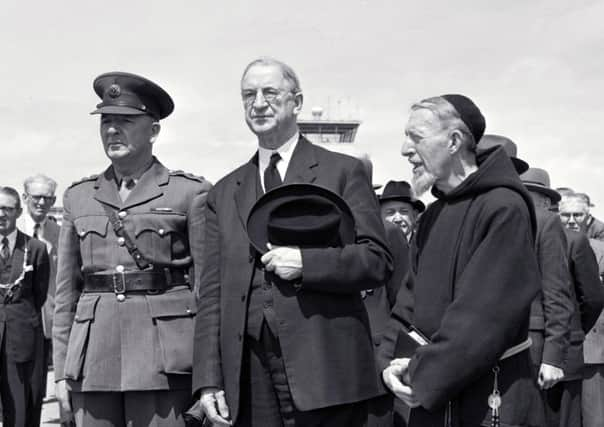A Fianna Fail link will not be enough to save fading SDLP


‘Dev’ had already been elected twice to the Northern Ireland House of Commons from County Down in the PR elections of 1921 and 1925, but did not take his seat on either occasion. In 1933, very soon after he had taken over the reins of government in what was then the Irish Free State, he was also successful in the Stormont general election in South Down, defeating TG McGrath, a Republican, by a hefty margin – 7,404 votes to 622.
Once again, Dev did not take his seat in Stormont – he was too busy rewriting the Irish constitution – and did not contest the 1938 election, which was won by a Unionist candidate. The South Down seat was otherwise won by the Nationalist Party for the remainder of its existence.
Advertisement
Hide AdAdvertisement
Hide AdHowever, South Down remained a focus of cross-border party activity. In 1949, the Irish Labour Party absorbed a number of Northern Ireland Labour Party members who were unhappy with the NILP’s position on Partition. The precise relationship was open to debate even at the time; but the fact is that majority control of Warrenpoint Urban District Council in 1949 and Newry in 1958 went to councillors under the banner of Irish Labour.


Jack Beattie, the Westminster MP for West Belfast and former NILP leader, also joined the Irish Labour Party in 1949, and Irish Labour were the largest opposition group on Belfast City Council. Beattie lost his Westminster seat in 1950, regained it in 1951 and lost it again in 1955, each time under the Irish Labour banner. In 1962, a young Irish Labour activist defeated the slightly younger Gerry Fitt in a Belfast City Council by-election. The winner’s name? Paddy Devlin.
When it was formed in 1970, the SDLP absorbed many of the NILP activists and almost all of the former Irish Labour activists. New times called for new thinking. Apart from the rather special case of Sinn Fein, the record of cross-border parties since has not been strong – in 1989, the year that the Workers Party elected seven TDs of the 166 in the Dail, they could manage only four seats out of 565 on Northern Ireland’s councils.
Will a Fianna Fail/SDLP merger make a difference? Again, new times call for new thinking. The SDLP are undeniably in decline. Their vote has decreased over every electoral cycle this century (with one exception, the 2009 European election, where it improved by 0.3% from 2004). There is an obvious attraction to a link with a potential party of government in Dublin (as the Irish Labour Party was in 1948-51 and again in 1954-57), and the extra resources that that relationship could unlock.
Advertisement
Hide AdAdvertisement
Hide AdAt the same time, it’s not obvious from the electoral record that Northern Ireland’s voters are terribly impressed by all-Ireland links, apart from those who are already voting for Sinn Fein; and it’s not at all clear that those who vote for Sinn Fein will be terribly impressed by a link with Fianna Fail. To regain relevance and reverse its continuing decline, the SDLP must do more than restructure its cross-border relationships; it must find a new political narrative, and give voters a positive reason to lend their support. That is the real challenge for Colum Eastwood and his team.
• Nicholas Whyte is senior director, global solutions at APCO Worldwide’s Brussels office, and visiting professor at the Faculty of Social Science, Ulster University